Modern, domestic chickens that are well-kept and cared for usually enjoy highly varied diets. But have you ever wondered what our beloved birds would eat if left to fend for themselves in the wild?
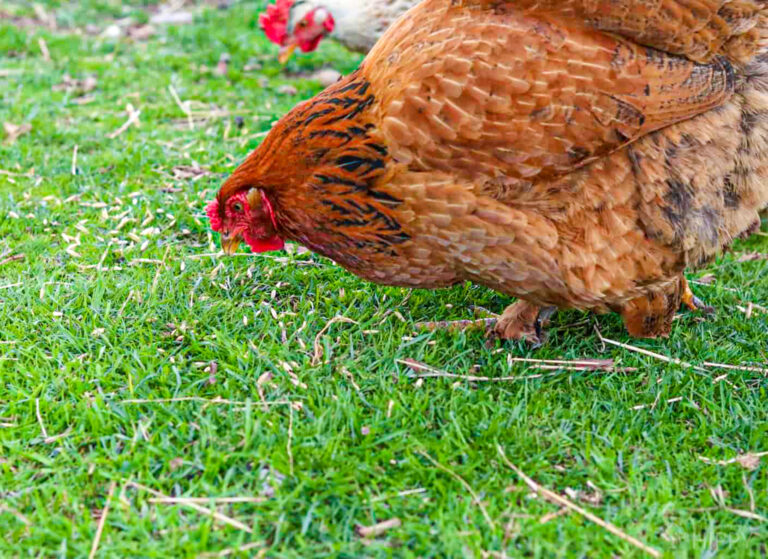
If chickens did not have people around to care for them would they still be able to get everything they needed in their diet? What exactly do chickens eat naturally when foraging?
Chickens are omnivores and eat a variety of plant and animal matter when foraging, including berries, grass, seeds, insects, weeds, and more.
It turns out that our modern chickens are still very close to their ancestral junglefowl relatives when it comes to foraging behavior and diet.
If you let your chickens out to free range or they are left on their own in the wild, their diets will look quite similar. We will tell you all about the things that are on their menu in this article.
| roots | grit | leaves | seeds |
| insects | worms | small mammals | larval insects |
| clover | alfalfa | dandelions | plantain |
| purslane | snails | slugs | ants |
| wasps | beetles | bees | earwigs |
| spiders | grasshoppers | crickets | blackberries |
| raspberries | blueberries | cherries | mice |
| voles | snakes | lizards | frogs |
What Do Chickens Eat When they Free-Range?
Chickens enjoy a widely varied diet when free ranging, assuming that the range they are eating from has a varied, abundant ecosystem.
Grasses and weeds, leaves and seeds, insects, worms, and even small mammals are all on the menu for these adventurous and adaptable birds. A varied diet ensures that chickens get all of the nutrition that they need in order to thrive.
Even in these categories, there is a lot of variety in what chickens will (and sometimes won’t) eat.
Chickens prefer the tender leaves of plants over the tougher stalks, for example. And they generally seem to prefer live prey to dead or dried-up insects.
A chicken’s digestive system is well equipped to handle this varied diet as well.
Their gizzard will break down food internally while their gut flora helps them break down different types of plants and animals so that they can extract all of the nutrients that they need.
This helps them survive and thrive on varied diets or less-than-optimal foods in times of scarcity.
The next sections will tell you more about their preferred foods when foraging.
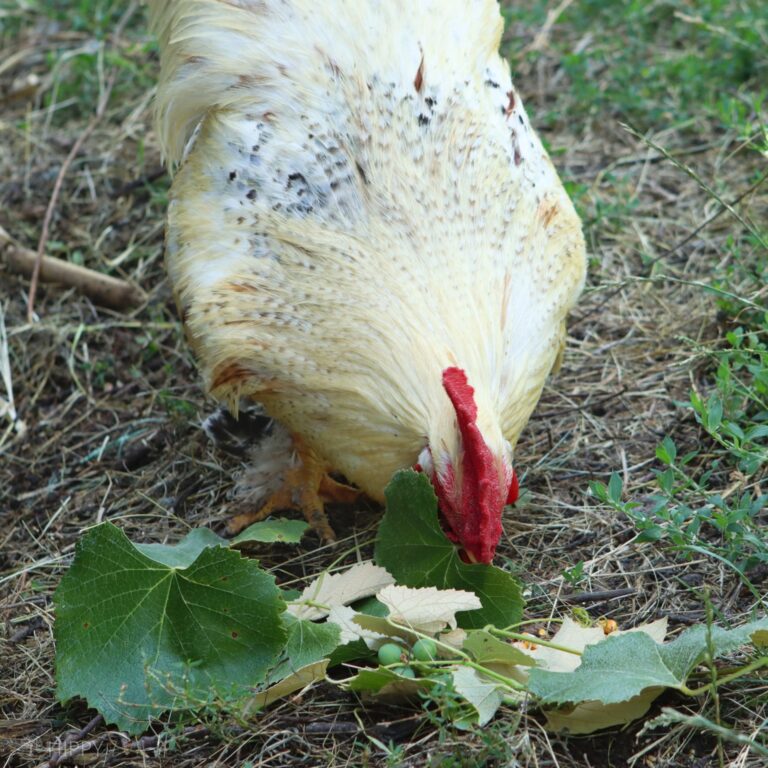
Grass, Leaves, Weeds, and Seeds
One of the mainstays in any chicken’s diet when foraging. Greenery in the form of grass, leaves, weeds, and seeds make up a good portion of what they will eat.
Some of their favorites include clover, alfalfa, dandelions, plantain, and purslane. They will eat the leaves, seeds, and sometimes even the roots of these plants.
However, chickens invariably prefer the softer, more tender leaves of plants to the tougher stalks, stems, and roots.
When given a choice, they will also go for the younger greens that are just sprouting up over older plants.
I wouldn’t say they are picky, necessarily, but they know the choice bits when they see them!
Seeds are another big part of their diet, especially in the winter when other food sources are scarce.
Chickens will eat just about any kind of seed, including grass seeds and grain. They will also scratch at the ground to uncover buried or germinating seeds to eat.
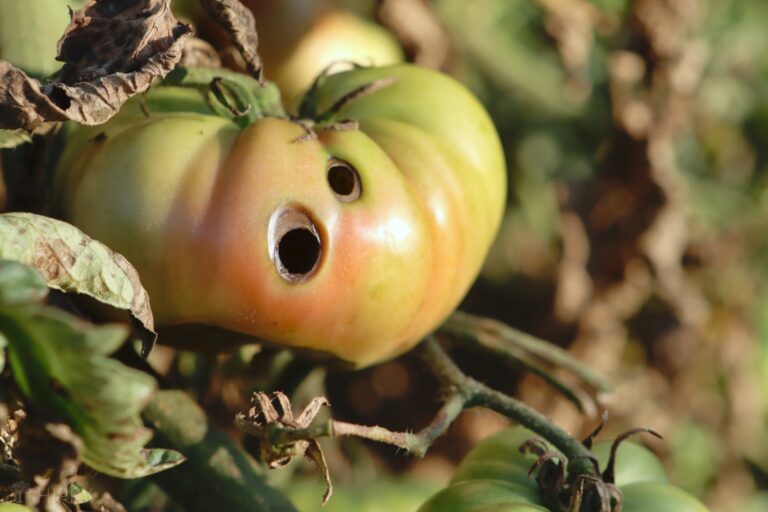
Worm and Grubs
You know the old saying. The early bird gets the worm, right? Chances are the bird in this aphorism was in fact a chicken; it had to be, such is their love for worms.
Worms are one of their favorite foods and they will go to great lengths to get them. I have seen chickens dig through snow, leaves, and dirt with single-minded focus to unearth these favorite wriggly snacks.
Other crawling, wiggling subterranean prey is on the menu, too. Grubs are a protein-packed food source that chickens seek out.
These larval insects, of all kinds, are helpless against a hungry chicken and their sharp beak.
Uncovered ant and wasp nests produce a buffet of grubs that chickens will gobble up in short order.
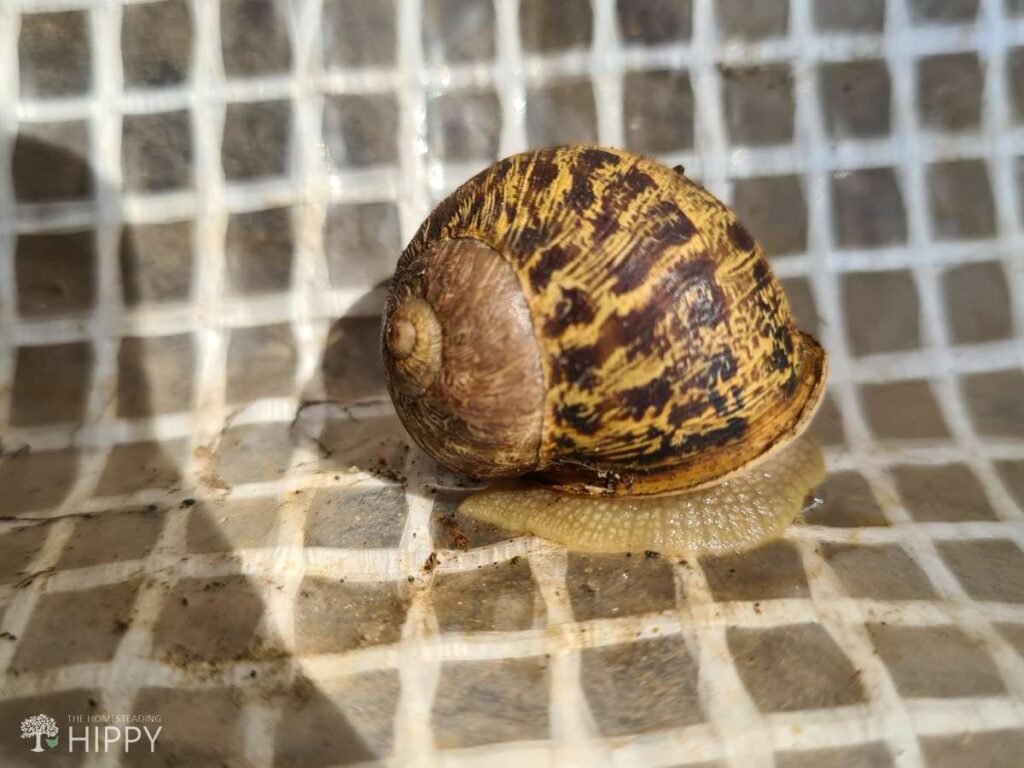
Snails and Slugs
Slimy garden pests to you and me, but delicious dinner to a chicken. Slugs and snails are yet another thing on their foraging menu.
Chickens will often be seen picking off slugs and snails around the garden or yard, gobbling them up as they go.
Some people choose to put out snail and slug bait to control these pests, but if you have chickens this is totally unnecessary.
Slugs might taste bad enough to deter other predators, but based on observation they taste great to chickens.
Compared to slugs, snails might last a bit longer thanks to their defensive shells, but chickens are clever and persistent; they can easily peck apart a snail’s shell or else scrape them out to get at their soft flesh.
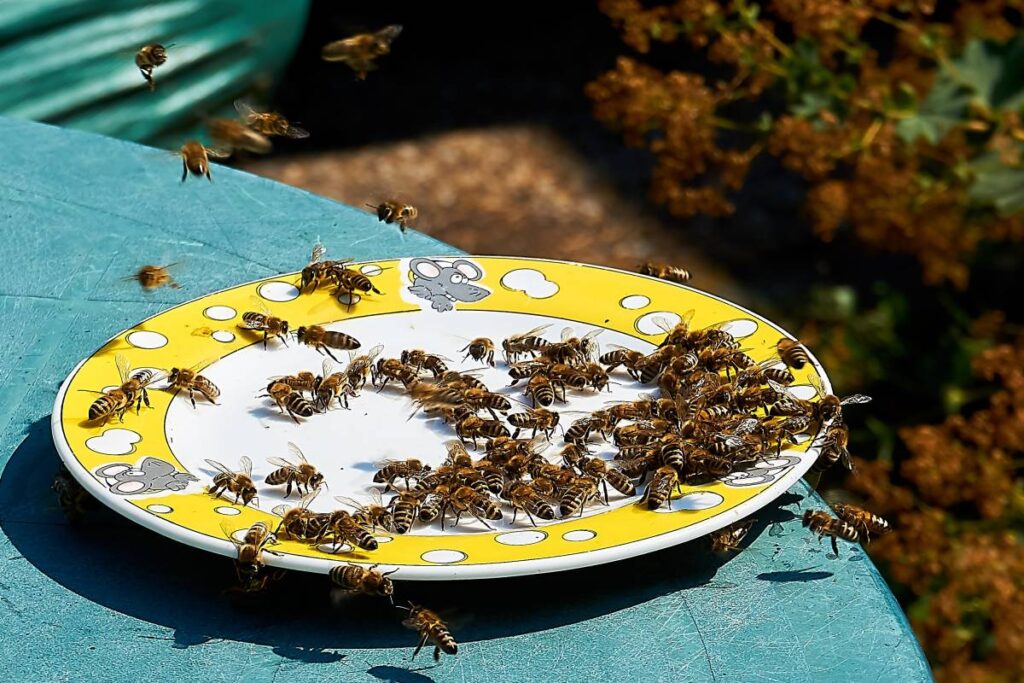
Insects of All Kinds
Insects are always a critical part of a foraging diet for your birds, providing plenty of protein along with many vitamins and minerals. Pretty much every kind of bug that lives is fair game to a chicken.
Chickens will eat just about any kind of bug, from beetles and bees to earwigs, spiders, grasshoppers, and crickets. If it’s small enough to fit in their mouth and they can catch it, they will likely try to eat it.
In fact, if you ever see your chickens reject a bug it is either truly dangerous, toxic or there is something wrong with your chicken!
Chickens possess excellent eyesight, particularly when it comes to motion, and will easily detect even the subtlest movement in the grass or just underground. This helps them home in on their insect prey, even little bitty ones like ticks.
Speaking of, chickens can dramatically reduce the number of pest insects on your property if you allow them to regularly free range. Just another good reason why you should!
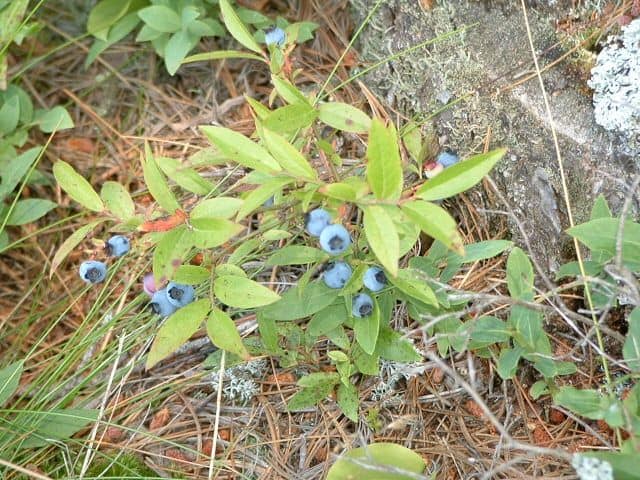
Berries and Fruit
Many birds love berries and chickens are no exception. Your birds will love blackberries, raspberries, blueberries, cherries, and just about any other kind of berry you can think of. If it’s a berry and it’s ripe, chances are your chickens will love it.
And don’t worry too much about the toxic ones; domestic chickens are generally pretty good about avoiding the ones that are bad for them.
Other fruit is another matter altogether. Chickens do like lots of fruit, but they should not eat too much of it and would not access it as much as you might think in the wild.
The problem with fruit is that it is high in sugar. Too much sugar can lead to obesity and other health problems, so it’s best to limit the amount of fruit your chickens can get. A little bit is fine, but watch the quantity!
Grit
Grit is an essential component of a chicken’s diet because it helps them process the rest of its diet.
What is grit? It’s simply small rocks, sand, and otherwise indigestible things that chickens eat to help them grind up their food in their gizzard.
A chicken’s gizzard is a muscular sac located just before the stomach that contains grit and stones. The gizzard works like our teeth, breaking down the chicken’s food so it can be properly digested.
Many keepers of chickens provide their flocks with grit as a supplement but most foraging birds will manage to find plenty in the form of small rocks and sand in the environment.
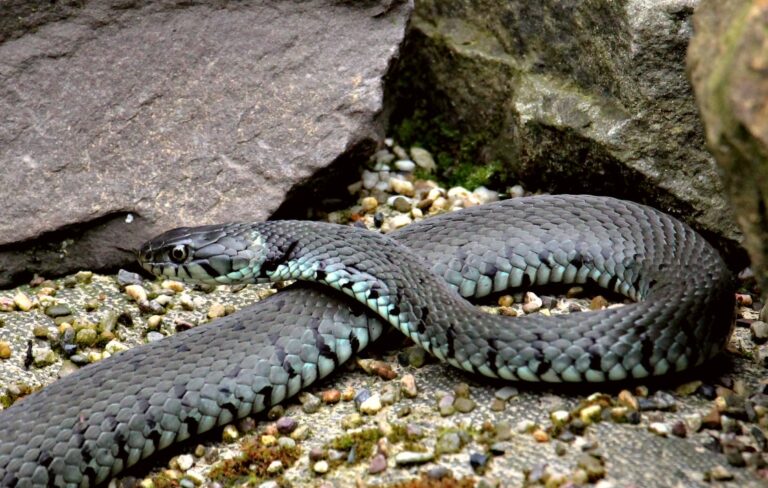
Mice, Lizards, and other Small Animals
Yes, chickens are carnivorous, and though you might not think of them as mighty hunters when you see them moseying around the yard, they have killer instincts and the tools needed to absolutely ruin the lives of all sorts of small vertebrates.
Mice, voles, snakes, lizards, frogs, and toads are all prey for chickens, and it is far from uncommon to see these birds dispatching and then eating critters that enter their territory, especially egg predators.
Roosters in particular are known to dispatch small animals and then make them available to the rest of the flock.
It can be a gruesome sight, but it is just another way your birds can get the high-quality protein they need!
Can Chickens Thrive on a Free-Range Diet?
Absolutely. Chickens are foraging animals by nature and will do best when allowed to range freely, seeking out the food they need.
Whether or not they can thrive on a free-range diet is dependent on what is available to them in their area.
What are the Disadvantages of Free-Ranging Chickens?
The single biggest disadvantage in free-ranging chickens is making sure they are getting a nutritionally complete diet.
This can be difficult to achieve if you are not familiar with chicken nutrition, and even more so if you don’t know what is available in your area. You can always supplement their diet with feed, however.
The next biggest cause of concern is predation. Chickens are prey for pretty much every other terrestrial predator, particularly mammals and various birds of prey. When chickens are out and about, they are at a higher risk of being taken by a predator.
This is something that some owners just cannot consider, but for others the risk is worth it for the overall improvement in the lives of their birds.
Tom has built and remodeled homes, generated his own electricity, grown his own food and more, all in quest of remaining as independent of society as possible. Now he shares his experiences and hard-earned lessons with readers around the country.
Find out more about the team here.

So, I assume I can forage myself, to feed my caged chickens. What is your opinion of foraging chicken feed (the plants that they like) and drying them to supplement them in the winter months? Gather now; feed later.